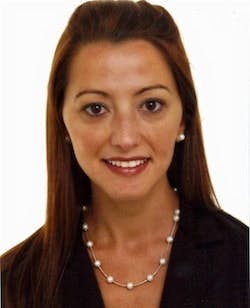Certified Safe
About the author: Sonia Acuña-Rubio is managing director for the NSF Intl. Food Div. in Latin America. Acuña-Rubio can be reached at [email protected]. Carolyn Gillilland is senior project manager for the NSF Intl. Global Water Div. Gillilland can be reached at [email protected]. Chelsea Corbin is editorial assistant for Water Quality Products. Corbin can be reached at [email protected] or 847.391.1007.
NSF Intl. now offers StaySafer certification, a program that ensures food and water safety, to hospitality centers around the world. Water Quality Products Editorial Assistant Chelsea Corbin recently spoke with NSF’s Sonia Acuña-Rubio and Carolyn Gillilland about the program, designed to build travelers’ confidence in the water safety and quality of their travel destinations.
Chelsea Corbin: Why is StaySafer certification important both to travelers and the hospitality industry?
Sonia Acuña-Rubio: The NSF StaySafer program was designed by water and food safety experts at NSF Intl. to help hotels, resorts and other hospitality establishments protect the health and safety of their guests by helping reduce the incidence of contaminated food, water or ice. This is essential, as the U.S. Centers for Disease Control and Prevention estimates that more than 10 million overseas travelers contract illness from food and drinking water, which can hurt a hotel’s reputation and lower the rate of returning guests. The program provides companies in the hospitality industry with a credible means of demonstrating the safety of their food and water to travelers, agencies and hotel rating websites. Consumers gain a program that enables them to identify safer hospitality establishments that have a demonstrated commitment to water and food safety.
Corbin: How is StaySafer certification measured?
Carolyn Gillilland: NSF food and water experts review an establishment’s written policies and procedures for both its food service operations and water systems, including food safety practices and training policies, water source and treatment systems, hotel schematics, and plumbing blueprints. The hospitality establishment then is subject to an onsite inspection. Water systems are evaluated against NSF Draft Standard 432: DrinkSafer: Water Safety Standard for the Global Hotel Industry, which verifies the safety of the design and maintenance of hotel water and ice systems. As part of this inspection, water and ice samples are collected from various locations within the hospitality establishment and tested for chemical and microbial contaminants. To ensure ongoing compliance, establishments also undergo regularly scheduled testing and evaluation for microbiological and chemical contamination of drinking water and ice. Once the establishment has demonstrated its compliance with the auditing and testing requirements of the program, NSF StaySafer certification is granted.
Corbin: What is NSF Standard 432?
Gillilland: NSF Standard 432 outlines the requirements of the drinking water safety component of the NSF StaySafer program. It specifies the scope of the audits and the guidelines for the water and ice sampling and testing. This includes the sampling locations within the hotel; frequency of sample collection; which microbiological, chemical and physical tests are conducted; the analytical methods; and the drinking water criteria for the detected analytes. It also outlines the certification policies for the drinking water safety component of the program.
Corbin: What is most challenging about ensuring safe drinking water in hotels?
Acuña-Rubio: Ensuring safe drinking water in hotels is very important from a public health and safety point of view. Therefore, when specifying review procedures for hotel water systems and drinking water sampling locations and testing methods, it is essential to take into account the wide variety of potential health hazards associated with water sources and water systems. Many of the hotels we are targeting may not be supplied with high-quality water year round, so determining the likely contaminants in the drinking water source, combined with the best methods of preventing these contaminants, proves to be a challenging task.
Corbin: In which parts of the world and types of hotels is StaySafer certification most critical?
Acuña-Rubio: Any type of hotel would benefit from the NSF StaySafer certification program; however, most consumers are worried about the safety of food and water in hotels located in developing countries.
Corbin: What tips should travelers keep in mind when consuming water in the U.S. and abroad?
Acuña-Rubio: Ensure that the water you are consuming is from a reputable source. If you are unsure, drink bottled water instead of tap water, especially when traveling abroad. Also, begin to look for the NSF StaySafer mark when researching and staying in hotels. That is one key step in knowing that the water you will be drinking is safer.
Download: Here
